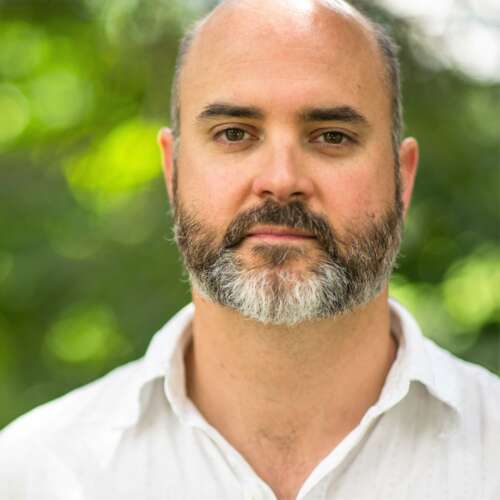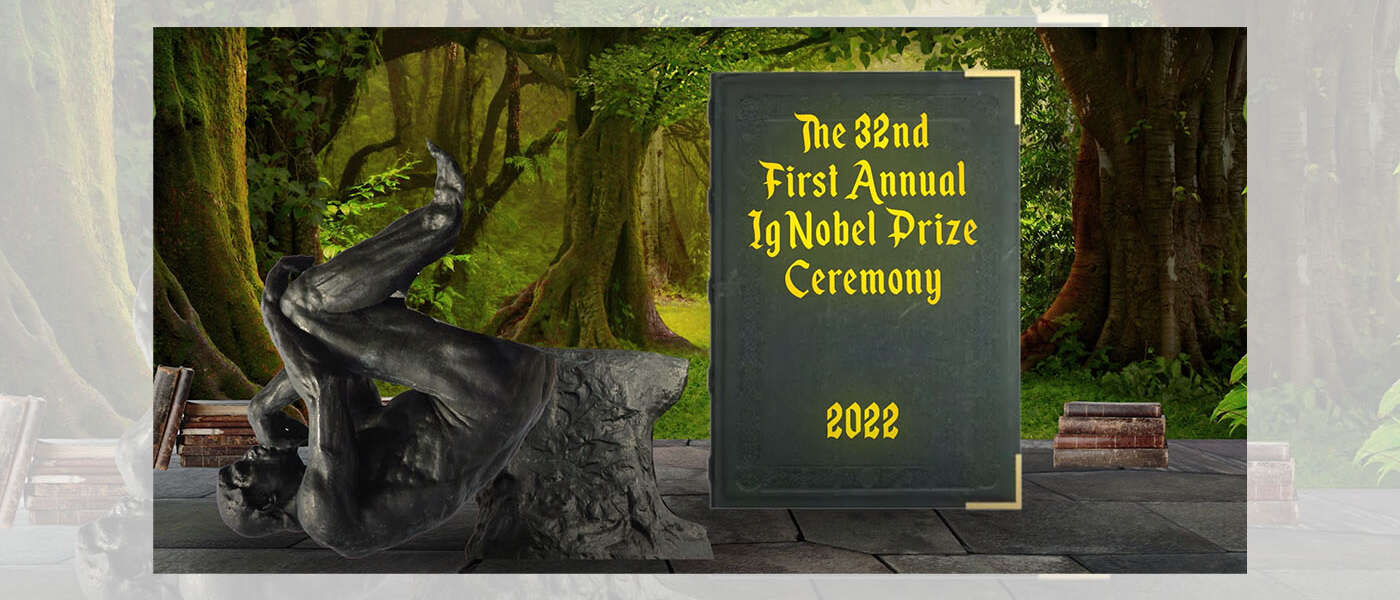A University of Guelph social psychologist has won a notable prize recognizing comical scientific achievements for his research that can help determine when people are lying in their gossip.

Dr. Patrick Barclay, a professor in the University of Guelph’s College of Social and Applied Human Sciences (CSAHS), was one of several scientists who were announced last week as recipients of a 2022 Ig Nobel.
The prize, presented by science humour magazine Annals of Improbable Research, celebrates imaginative or funny research that “makes people laugh, and then think.”
Barclay, a professor in the Department of Psychology, says he and his team of co-authors were “totally, pleasantly surprised” to learn they had won.
“We didn’t even know we were nominated and still don’t know who nominated us or how it was chosen,” he said.
Every year, the magazine enlists Nobel laureates to attend a ceremony to hand out 10 prizes to noteworthy researchers. The event is co-sponsored by the Harvard-Radcliffe Society of Physics Students and the Harvard-Radcliffe Science Fiction Association.
This year, the awards were presented during a pre-recorded webcast on the magazine’s website, with each winner given a virtually worthless Zimbabwean $10-trillion bill.
While Barclay says it would be easy to see the prize as insulting, it may be just the opposite.
“Frivolous research is usually the most boring, but it takes a special study to sound silly on the surface but actually be useful,” he said, “so I’m flattered to win.”
Barclay studies cooperation and punishment among humans, especially in social dilemmas. His team won the Ig Nobel “peace” prize for their 2021 paper “Honesty and dishonesty in gossip strategies,” published in Philosophical Transactions of the Royal Society B: Biological Sciences.
In the paper, the team developed a mathematical model to predict when gossips will tell the truth and when they will lie, depending on how much they value the target and recipient of the exchange. The research sounds silly on the surface, said Barclay, which is likely why it captured the judges’ attention.
“Gossip is often thought of as a bad thing or idle chatter, and math is probably the hardest science you can get. So to do a mathematical analysis of gossip – that just sounds incongruous, especially when it’s trying to figure out when gossip will be truthful versus dishonest,” he said. “It’s easy for people to misinterpret it as us advising them on when to lie.”
But as the authors note in their paper, gossip can play important social functions. It provides information about another’s trustworthiness, it allows receivers of gossip to detect potential cheaters and it promotes cooperation by discouraging behaviours that violate certain social norms.
While the Ig Nobels are meant to be fun, they are also intended to spark the public’s interest in science, medicine and human behaviour.
“Some of the other awards this year were downright useful, like the study on post-chemotherapy ice cream, which the researchers found cuts infections in half,” said Barclay. “Studying ‘How can we use ice cream in medical procedures?’ sounds silly on the surface, but there’s more to it. As the awards tagline goes: ‘First it makes you laugh, then it makes you think.’”

